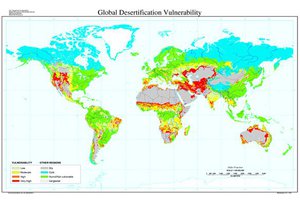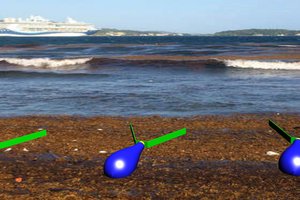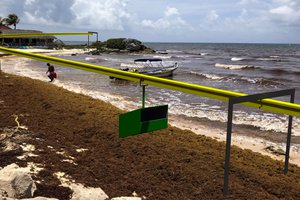Caribbeans Sargassum Problem 2.0
The Problem
Sargassum is a natural, even essential, part of the Caribbean's ecosystems but these
recent blooms are having a devastating impact on the region, both ecologically and
economically. Many tourist areas and islands were inundated this year. It piles up on
beaches, sometimes many feet thick covering large area of shore waters and begins to decay. In the process of decay, the hydrogen sulphide that gets released smells like rotting eggs and many resorts had to close their doors. Hydrogen sulphide is dangerous to humans in large quantities, causing headaches, dizziness, nausea and even asthma has been reported in some local communities. The main reason the sargassum decays in the Caribbean at fast rate is because of the combination of sunlight and moisture. These two factors plays big role in decomposition and synthesis of algae. Researches on effect of decomposition on algae have been done during its presence and absence which have indicated that not only sunlight plays big role on decomposition but also speed ups the process. This is very dangerous for all living things near the shore where the sargassum is decaying and it is critical either to stop the decaying process or at least slow the decay process until clean up is applied.
Our Solution
This project is about either stopping the decaying process of sargassum or at least slow the process until clean up is applied in the shore of Caribbean. This is done by manufacturing spherical floating balls in massive number and install them on the beaches of the Caribbean for them to float on top of the decaying sargassum in packs without any spacing between them to reflect the sunlight rays before it is absorbed by the sargassum, perfectly preserving the accessibility of the way of life in the area since boats, animals and other can travel freely on the shore since the spherical balls can move and floats. The spherical ball will have minimum thickness and very low weight to enable them float at all time and since the spherical balls will not degrade because of the sunlight, it will not be a treat to the ocean from converting into micro-plastic. One sphere ball costs about 30 cents and this makes the solution feasible, long term and practical. This technology has been used in many areas of work for example Los Angeles has deployed a total of 96 million “shade balls” into LA Reservoir in an effort to save 300 million gallons of water. The main propose of the black spherical ball is to simply block the incoming sunlight to prevent formation of Bromate. This method has been proven effective with no negative impact. This floating sphere balls are also has been used in other fields like airport ponds to prevent the water being sucked during airplane takeoff, mine fields to prevent contamination from the mine in to the water and other.
My Assumptions
I am assuming that the floating balls will be placed on the coastline where the majority of the sargassum piles up on the water.
I am assuming that the floating balls will cover the floating sargassum at all times until clean up is done.
I am assuming that the floating balls will not increase the surface temperature of the sea water on the Caribbean shores where the sargassum floats same as in the case of LA reservoir.
Constrain to overcome
The main limitation this project has is the risk of creating dead zone beneath the floating spherical ball. Meaning life below the surface of the shore both plants and animals need sunlight to survive. Blocking the sunlight will create a dead zone because the animals will migrate and plants like algae will die. But sadly the sargassum is also doing the same effect by blocking the sunlight as it piles up in masses. So this project does not solve the dead zone issue but provide the core problem of the sargassum.
Current work...
 Anteneh Gashaw
Anteneh Gashaw
 Pato Montalvo
Pato Montalvo
 Danny
Danny
